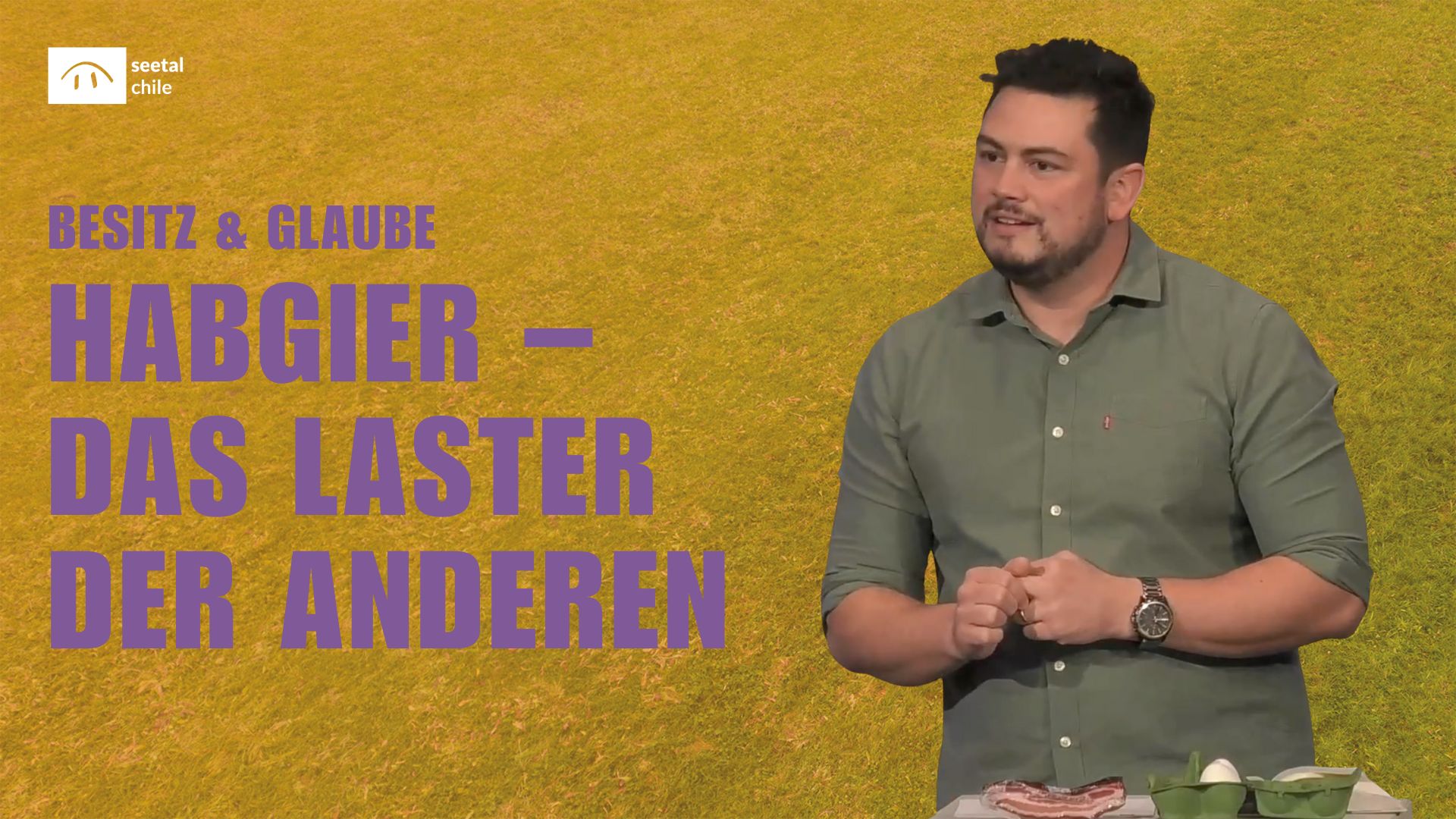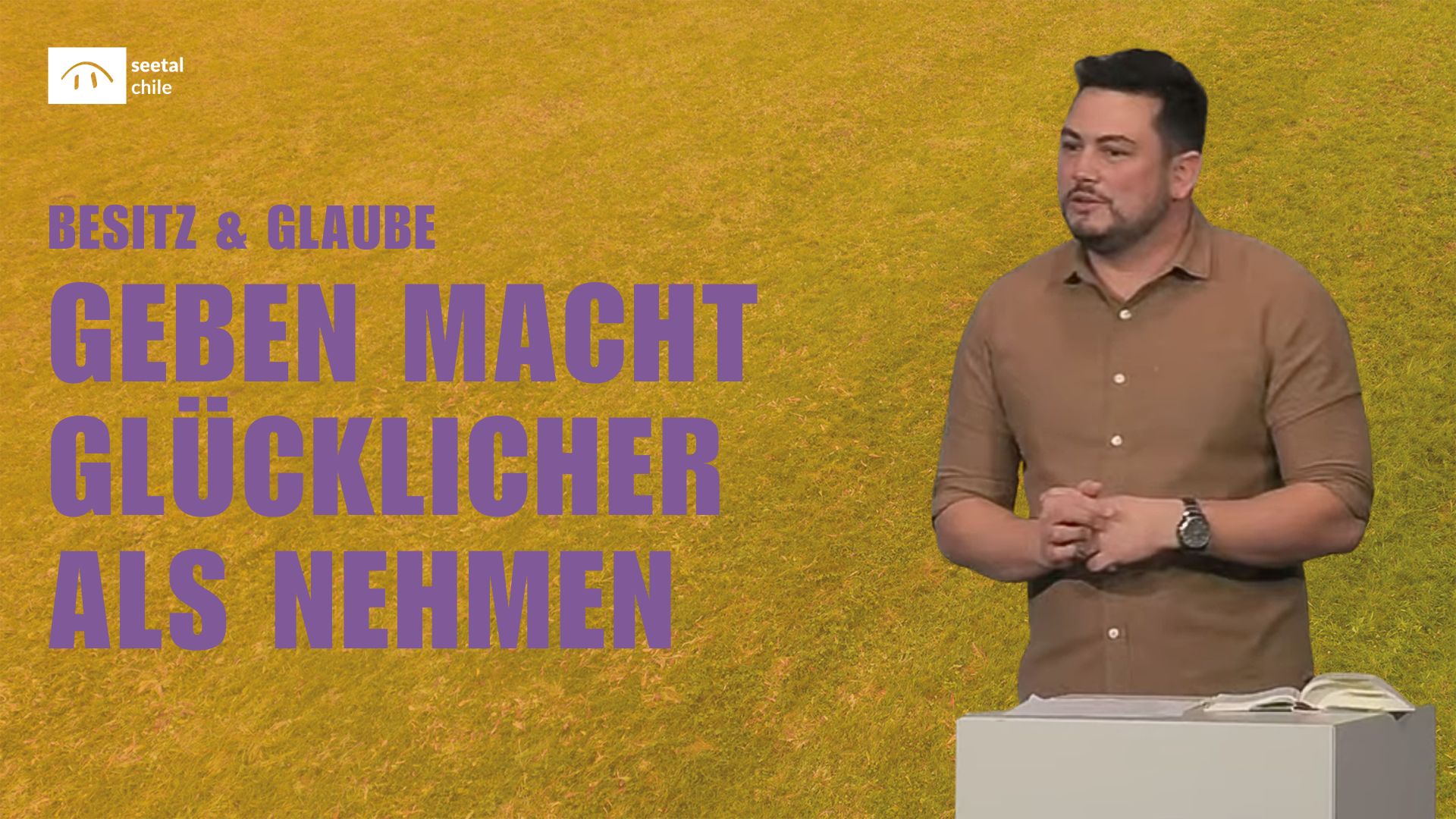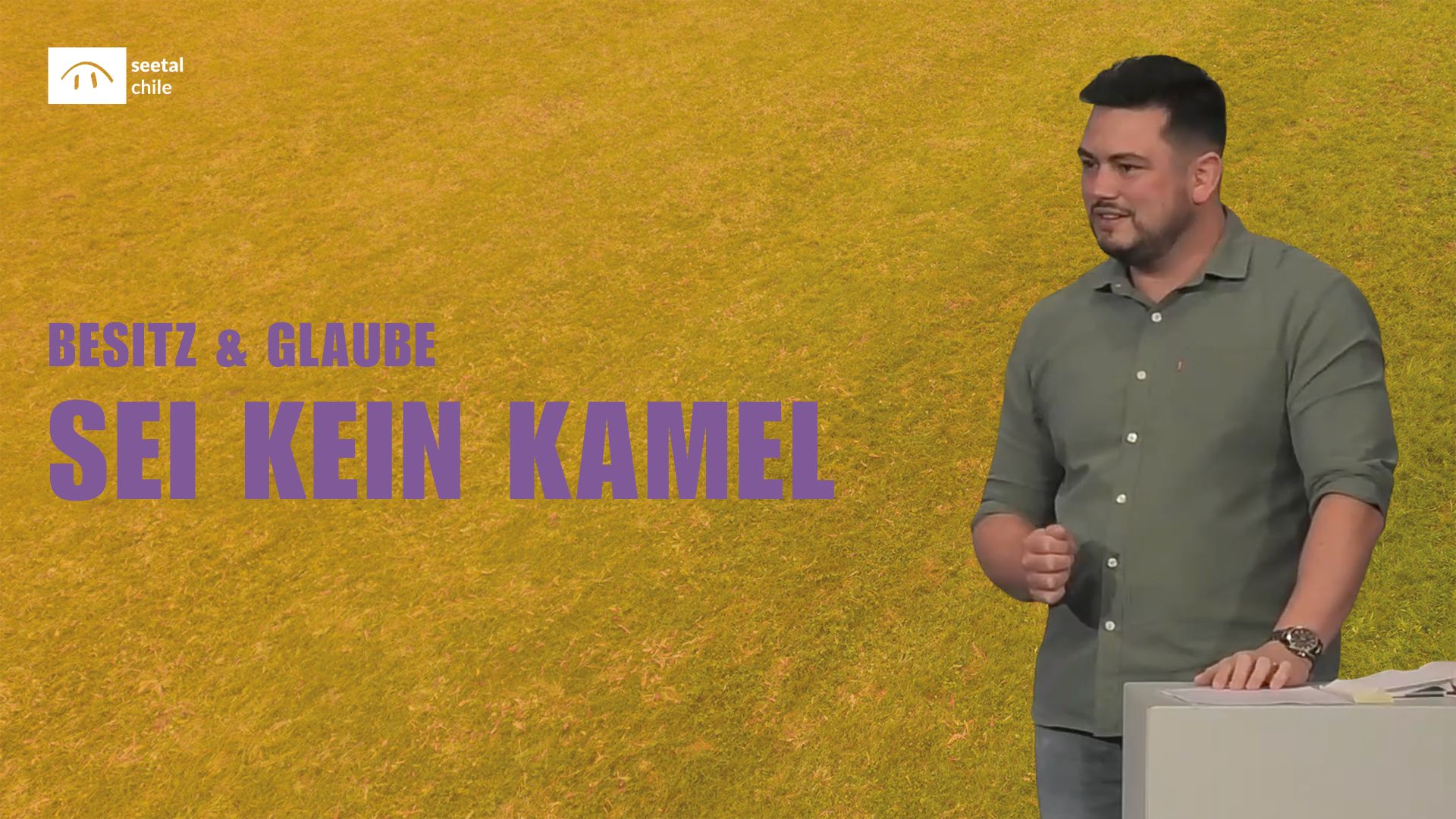Build on rocks
Series: Metamorphosis | Bible text: Matthew 7:24–29
The gap between hearing and doing is a general human phenomenon. When God became man in the person of Jesus Christ, he impressively overcame this gap. John describes this with the words: «And the Word became flesh and dwelt among us». In the life of a follower of Jesus, too, the Word is to become flesh and take shape. Such a person is like one who builds his house of life on a rock. The storms of everyday life cannot harm him.
Some time ago, there was an incident in the underground in Cologne. In broad daylight, a young girl was sexually harassed by several men. Her distress could not be overlooked, the underground was full. But none of the passengers came to the young girl’s aid. Apart from the underground as a crime scene, something like this could happen in any Swiss city. I think that if you had asked the passengers in the underground, none of them would have said: «I think it’s okay for young girls to be harassed on public transport.«But no one acted on this view. Instead, through their passivity, everyone condoned the men’s excesses.
The gap between hearing or thinking and doing is a general human phenomenon. If violence is becoming more and more widespread in our midst, then it is also a consequence of the fact that thinking and doing diverge for too many of us. That we can call injustice by its name – but do nothing about it. The great concern of the Sermon on the Mount is to bring word and deed together.
The Word becomes flesh
John describes the Christmas event succinctly: «And the Word became flesh and dwelt among us, and we beheld his glory, a glory as of the only begotten Son from the Father, full of grace and truth.»(John 1:14 LUT).
With God there is no divergence between word and deed. Jesus, the Word of God, became flesh. Christmas is the incarnation (becoming flesh) of God. Many meat processing plants have carna in their name: Delicarna, Micarna, Carna Center. These help to ensure that grilling does not remain a theoretical mind game, but that the delicious entrecôte actually causes a taste explosion on the palate.
The Word became flesh. This shows that Jesus is not only an interpreter of the Holy Scriptures, but in him God himself comes to the people. God is present in Jesus, which is why there are impressive «taste explosions». With Jesus, the new world, World 2.0, the city on the mountain, has dawned. His life is a wonderful taste of the Kingdom of God. I know of no one in whom word and work, thought and action correspond as much as in Jesus Christ. In the Sermon on the Mount he demanded: «Love your enemies and pray for those who persecute you»(Matthew 5:44 NLB). Later, Jesus behaves just as he had preached before. He does not fight back when he is taken prisoner. He heals the servant of the high priest who has had his ear knocked off by one of his disciples. He prays for his enemies. His life is a unique sample for the new world.
Incidentally, the phrase «the word of the Lord came to pass» is found over a hundred times in the Old Testament. The verb to God’s word is not to think, speak or hear, but to happen.
Many helpers for a «not
«Therefore, whoever hears these words of mine and does them is like a wise man who built his house on rock. And when the rain fell, and the waters came, and the winds blew, and beat upon that house, it fell not: for it was founded upon the rock. And whosoever heareth these sayings of mine, and doeth them not, is like a foolish man that built his house upon the sand. And it came to pass, when the rain fell, and the waters came, and the winds blew, and beat upon the house, that it fell, and the fall thereof was great.»(Matthew 7:24–27 NLB).
Jesus describes two kinds of people in his parable: those who hear his word and do it, and those who hear his words and do not do it. The unassuming word not makes the significant difference between a house on sand and a house on a rock.
This darned «not» has many helpers. Jesus is listed below:
- The others should once. I see in the other person the deficit that I actually perceive in myself but cannot admit to myself (Matthew 7:1–5).
- I can’t make it. Those who want the virtues of the Kingdom of Heaven to take shape in their lives are not thrown back on their ability or inability, but are encouraged to ask for God’s transforming power (Matthew 7:7–11).
- It’s all far too complex and complicated. I can no longer see the forest for the trees. In this case, Jesus offers us a simple guiding question: Do I treat others as I would like to be treated? (Matthew 7:12).
- But that does put me on the spot. Doing God’s word can actually get us into trouble. Are we willing to pay the price of discipleship? (Matthew 7:13–14).
- Yes, but this one says… and that one says.… At all times there have been people who have appeared in the name of God. By the fruits we can expose false prophets, wolves in sheep’s clothing (Matthew 7:15–20).
- Christ is Lord. Christ is Lord. Do not be bluffed by pious words in songs and prayers, in confessions and speeches. What counts is not the steep confessions, but the doing (Matthew 7:21–23).
- But I do read the Bible and hear the sermon every Sunday. This brings us to the basic message of today’s sermon. Start doing what you have heard!
The problem of this not is that our house of life cannot withstand the storms of everyday life. No sooner do problems arise than our lives come apart at the seams. Last summer, we were eyewitnesses to a huge flood disaster in Rhineland-Palatinate. Entire houses were simply swept away. Recently, the same thing happened in British Columbia in Canada. Could it be that even in these flood catastrophes, the gap between word and deed is the problem. The Word of God instructs us to care for creation, but for selfish reasons we exploit it.
The word becomes a rock
During the renovation of our house, load-bearing walls will be demolished. In this context, we obtained calculations and tips from a structural engineer. We want to make sure that the house can withstand storms and snow loads. The tip of the supreme structural engineer in the matter of the statics of our lives is: If we do the word of God, it will become a rock for us. Willy Brandt is reported to have said in 1989 at the unification of East and West Germany: «What belongs together is growing together.«In the same way, according to Jesus, word and deed belong together. That is the quintessence of the whole Sermon on the Mount. When we are on the way with Jesus, we should not stop at listening, theologising and discussing, but act.
- Jesus demands that we should not be angry and not take revenge when someone harms me. I should seek balance and peace, even if it harms me. Yes, I should even love my enemies.
- Jesus demands that we should not let our eyes wander covetously after the wife (or even the husband) of another. We are to be faithful to our spouse and not dissolve the marriage vows.
- Jesus asks us not to secure our lives by striving for money and good and not to worry about our future.
- Jesus calls us to submit first to his lordship and to do what is according to him.
It is the doing that is decisive and not the knowing or discussing. James is also convinced of this: «But it is not enough to listen to the message – you must also act on it! Otherwise you will only deceive yourselves»(James 1:22 NLB). To bring listening and action together, the seetal chile has the small groups. The idea is that the last third of each meeting deals with the question: «What does God put on my heart to implement in the next two weeks?» We cannot only eat, but must utilise the food, otherwise we fall ill in self-deception.
In another place Jesus said: «He who does the will of God wants to dowill recognise whether my teaching comes from God or whether I speak out of myself»(John 7:17 NLB). The moment we become doers of the Word, we will know Jesus. Perhaps you are faced with the decision of whether you want to entrust your life completely to Jesus. According to this statement of Jesus, you need to take the courageous step to start living according to his words. Only then will you get certainty and knowledge that Jesus is absolutely trustworthy..
Our brain has the ability to habituate. We are constantly exposed to a multitude of stimuli. If we paid attention to all of them, we would be hopelessly overwhelmed and ultimately unable to act. So our brain learns to tune out weak stimuli that turn out to be insignificant. Habituation also exists in our spiritual life. We listen to sermons, but we don’t put into practice what we have heard, or we can’t put it into practice and practise it, because we are constantly being served a cumulative load of new things that are impossible to put into practice. Now our brain realises that nothing actually happens when we disregard what we have heard. Our brain learns to classify a sermon as non-essential, we become more and more numb and implement less and less the more we have heard that has remained inconsequential and are ultimately no longer accessible at all. The Bible uses the expression «clogged ears» for this.
When we do God’s word, it becomes the rock of our house of life. David wrote: «He is my rock and my help, my castle in which nothing can happen to me»(Psalm 62:7 NLB). When we become doers of the Word, resilience (psychological resistance) enters our lives. Even strong storms cannot harm us. Therefore, the best advice for your life is: Build your house of life on the rock. Put into practice what you know about God through the Bible.
Today we close the topic Metamorphosis from. «Let your being be transformed!»(Romans 12:2 SLT). We have to want to change, but we cannot do it ourselves. We initialise our personal change into the image of Jesus by purposefully putting into practice what we have recognised from God. When we do God’s word, the rock comes into our lives – and that is Jesus Christ himself. When Jesus becomes our rock, everything becomes much easier and the transformation of our character happens through him and for us as if automatically.
Possible questions for the small groups
Read Bible text: Matthew 7:24–29
- What is the difference between a theoretical religion and God becoming flesh in the person of Jesus Christ?
- How can God’s Word become flesh in your life? What does this saying mean?
- The «not» has many helpers. Which of them is at work most strongly with you?
- What does it mean when the doing of the Word becomes the rock under our house of life? In what weather conditions is this relevant?
- The metamorphosis theme is coming to an end. What do you take away from it? What has changed in your life as a result?




